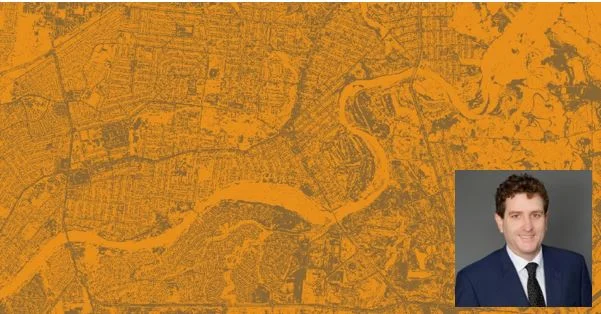In Queensland, a Heritage Place may be listed by a Council (if of local significance) or by the State (if of state significance), or both. A search can be undertaken of a local or state heritage register to determine if a place is heritage listed.
If development is being undertaken on (or adjoining) a heritage place, it may trigger the requirement to obtain development approval for the aspect of development being proposed. This is to ensure that the effects of the proposal on the heritage place can be appropriately considered and assessed. In some instances, it may be possible to obtain a Heritage Exemption Certificate (local or state).
A client recently came to us proudly waiving the Exemption Certificate they had obtained from the Department of Environment & Heritage Protection (DEHP), in respect of works to a heritage place of State significance. The proposed works were limited to internal fit-out alterations to accommodate their new tenancy lease within the building. We were commissioned to obtain the development approval for Material Change of Use (MCU) from the local Council. Having had the heritage assessment of the works completed upfront and an Exemption Certificate issued, they thought there would be no need for further assessment of heritage matters and that this would expedite processing time within Council for the development application. Time was of the essence to meet commercial and contractual obligations of the lease.
Schedule 3 of the Sustainable Planning Regulation 2009 identifies circumstances when development is ‘assessable’ or ‘self-assessable’ and the type of assessment required. With respect to development on a heritage place, Table 5, item 2 of Schedule 3 states inter alia that any aspect of development is assessable, other than development for which an exemption certificate under the Queensland Heritage Act 1992 has been issued. It further states that the type of assessment in such circumstances is code assessment (against the Qld Heritage Place State Code). Since the client held an Exemption Certificate, they understood the heritage aspects were therefore not assessable and the MCU would not have to be referred back to DEHP for heritage assessment, thus reducing processing time.
While preparing the development application and on closer inspection of the Exemption Certificate, we found that the development description that the certificate was issued in favour of was for ‘Demolition of existing fit-out and new fit-out work and new lift, structural openings and modifications’.
Although the particular aspect of development that was granted exemption was not stated on the certificate, it was apparent that it was in respect of the actual works to be performed (ie building work). The Exemption Certificate did not extend to the Material Change of Use component. This meant that the development application submitted to Council for Material Change of Use triggered referral to SARA for assessment by DEHP of heritage matters pertaining to the MCU aspect, pursuant to Schedule 3, Table 5, item 2 of the Sustainable Planning Regulation. The time savings the client thought they had achieved by obtaining the Exemption Certificate upfront were not realised because the MCU still triggered referral to SARA for consideration of heritage matters by DEHP, notwithstanding the Exemption Certificate.
We think it’s fair to say that it is highly likely that only a town planner would know the subtleties of distinction between the various aspects of development (eg Building Work, MCU, Op Works, etc) and the actual extent or limitations of a heritage exemption certificate. To avoid this confusion, we believe the certificate (and for that matter the Exemption Certificate Application Form) could be modified to more clearly identify the aspect of development that is being granted exemption, so that proponents are aware whether further approvals will be required for any other aspects of development. In the event that an Exemption Certificate does not extend to an MCU, then this should be clearly stated on the Exemption Certificate Application Form, so that the recipient of the certificate is aware that further approvals may be required.
We also found that the client had made some modifications to the drawings supplied to us for the MCU development application, when compared to those authorised by the original Exemption Certificate. This meant that while there were no contrary conditions imposed on the development application to those contained within the Exemption Certificate, the client would be required to either refer their building application to the DEHP for assessment of the modified drawings, or to return again to DEHP to update the Exemption Certificate to reflect the modified drawings, prior to gaining building approval.
The Take-Away
From the traps and tips we’ve shared in this blog, you should now have a better idea of things to be aware of when dealing with a heritage place and the potential limitations of Exemption Certificates.
If the proposed development involves an MCU in addition to carrying out building work, be sure to investigate whether the Exemption Certificate being sought extends to all aspects of development being applied for. If it doesn’t, you’ll need to factor in additional time to your development approvals timeframe for heritage assessment of that aspect of the development that does not benefit from the Exemption Certificate. In addition, be sure (as far as is practicable) to finalise the proposed development drawings prior to obtaining an Exemption Certificate, so that they will be consistent with those submitted with the development application, otherwise it will be necessary to either refer the building application to DEHP for assessment of the modified drawings, or to return again to DEHP at building application stage to update the Exemption Certificate to reflect the modified drawings.
Clegg Town Planning is experienced in procuring development approvals for both local and state heritage places and can relieve the stress and uncertainty from your project, by ensuring an efficient and streamlined approval process is followed.









